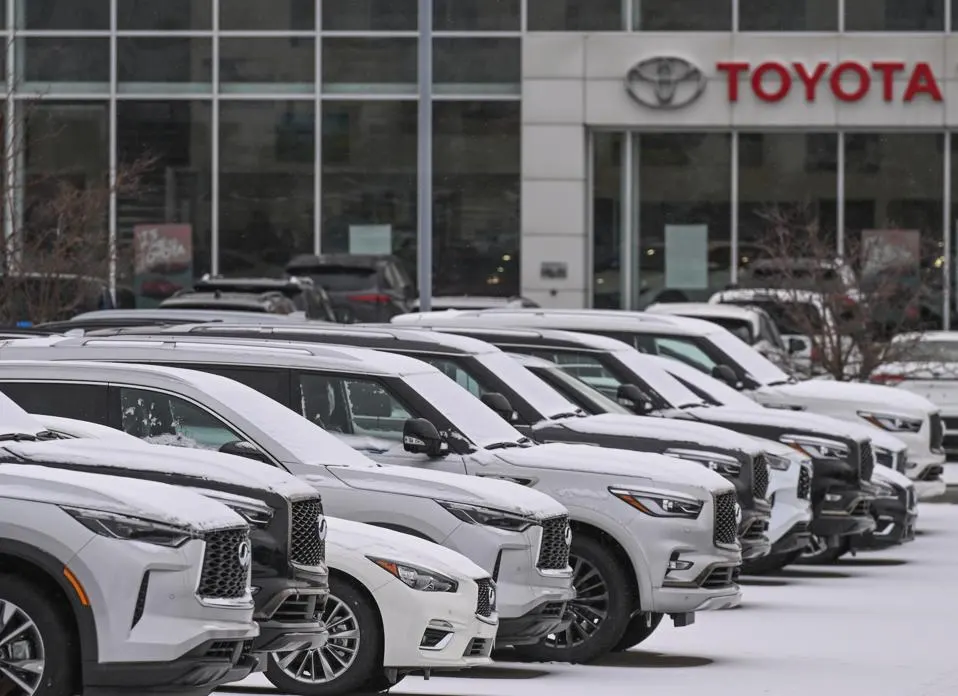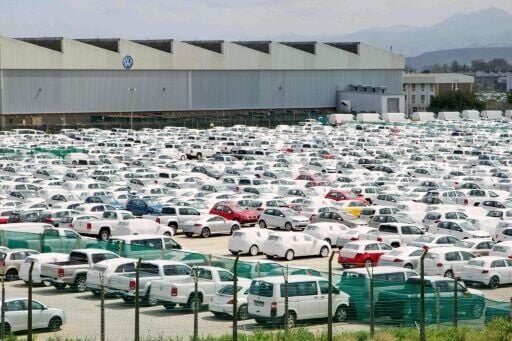South Africa’s auto industry, a major player in global trade, exports nearly $1.9 billion worth of vehicles annually—many heading to the United States under a trade agreement now facing an uncertain future as President Donald Trump ramps up pressure on the country.
“I don’t think that South Africa has got a chance of the renewal” of the African Growth and Opportunity Act, said Neil Diamond, president of the South African Chamber of Commerce in the United States.
The agreement, known as AGOA, provides duty-free access to the U.S. market for various African exports, including South African-made cars. This exemption from tariffs has been a crucial advantage for the nation’s automotive sector.
As a result, the industry has flourished. Motor vehicles make up 22% of South Africa’s exports to the U.S., trailing only precious metals, with total shipments valued at $1.88 billion, according to government data.
Seven global automakers operate in South Africa: BMW, Ford, Isuzu, Mercedes-Benz, Nissan, Toyota, and Volkswagen.
“It’s half a million people that are employed in the industry, so right across the value chain,” said Billy Tom, head of The Automotive Business Council, known as Naamsa.
With AGOA expiring in September 2025, its potential loss looms large over South Africa—the program’s biggest beneficiary—raising concerns over economic fallout.
“It would be a big impact in the sense that the United States is the third-biggest export market for us. And that market has grown over the years,” Tom told AFP.
He estimates that AGOA supports 86,000 direct jobs, with another 125,000 employed in subcontracting and supply chain roles, many of them tied to auto manufacturing.
“It will have a significantly detrimental effect on the supplier base, and over the long term, I think we could expect that the industry does not survive in South Africa,” warned Renai Moothilal, who leads the National Association of Automotive Component and Allied Manufacturers.

Political Tensions and Trade Threats
South Africa’s position on AGOA is complicated by mounting tensions with Washington, fueled in part by domestic policies and foreign alliances.
One flashpoint has been a controversial land law that has drawn condemnation from influential figures, including Pretoria-born billionaire Elon Musk, who maintains close ties to Trump’s circle. Musk has criticized what he calls “racist laws” and amplified conspiracy theories alleging, without evidence, that white South Africans are being persecuted.
Meanwhile, South Africa’s foreign policy decisions have further distanced it from Washington. The government has aligned more closely with Russia and China and has spearheaded legal action against Israel at the International Court of Justice.
“President Trump could cite the clause in the AGOA Act, which says that beneficiaries have to maintain, or their activities have to be in line with US security and foreign policy interests,” said Richard Morrow, a researcher at the Brenthurst Foundation.
There is precedent for such action. In January 2024, then-President Joe Biden revoked AGOA benefits for the Central African Republic, Gabon, Niger, and Uganda.
However, Trump’s motivations could extend beyond foreign policy, Morrow suggested.
“Donald Trump has repeatedly used the automotive sector in America as a bellwether for the American economy,” he told AFP. “It’s traditionally a sector which is very blue-collar” and central to Trump’s base.
It remains unclear whether Trump intends to “punish South Africa” or leverage AGOA “as a means of threatening South Africa,” Morrow added. Another possibility is a targeted approach—stripping only the auto industry from AGOA benefits while sparing other sectors.
Unexpected Consequences
Ironically, removing South Africa’s auto industry from AGOA would primarily hurt global manufacturers based in U.S.-aligned nations such as Germany and Japan, noted Isaac Khambule, a political economics professor at the University of Johannesburg.
The business landscape in South Africa is also largely tied to Western interests. “The demographic of people who own the majority of the businesses in South Africa is largely aligned to the West,” Khambule told AFP.
Yet even before any official decision, Trump’s rhetoric has already had a chilling effect. The uncertainty surrounding AGOA’s future is leaving investors hesitant, businesses cautious, and the auto industry on edge.


